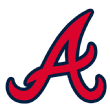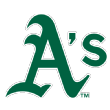MLB Playoffs Power Rankings: Reseeding the eight remaining teams as division series begin

And just like that, we're down to eight playoff teams in the strangest Major League Baseball season in memory, with eight opponents left steaming over their 2020 MLB playoffs experience being so brief. But for these eight teams, there are no maybes or might-have-beens -- they're baseball's elite eight. And that means they're just three wins from advancing to their league championship series and a bid for a pennant and, beyond that, a World Series title.
Having come this far, we asked ESPN's baseball coverage team to rerank the teams remaining, based largely on what we learned about them in their victories in the wild-card series. Contributing as well is senior baseball writer David Schoenfield with his evaluation of what has changed for each team and what remains to be seen -- but could prove crucial in the division series.
1. Los Angeles Dodgers
What's changed: Nothing much. They remain the team to beat, with the best lineup, the best rotation, probably the best bullpen and maybe even the best defense. After throwing eight shutout innings with 13 strikeouts against Milwaukee,Clayton Kershaw might even be poised for that monster postseason run we've waited for the past eight years.
What we didn't learn: Well, let's be honest, that Brewers lineup Kershaw beat was probably the worst playoff lineup ever. The cleanup hitter had batted seven times all season, with one hit. The Brewers pinch-hit a guy who hadn't batted all season. As good as Kershaw was, he'll face a much tougher lineup in the Padres. We also didn't get a clear picture on the state of Walker Buehler's blister problems. He lasted four innings and fanned eight but also allowed a two-run home run and was removed after 73 pitches.
2. Tampa Bay Rays
What's changed: For those who didn't pay much attention to the Rays in the regular season, the two-game sweep of the Blue Jays offered a glimpse of not just the 1-2 punch of Blake Snell and Tyler Glasnow, but also the hard throwers in the bullpen -- Diego Castillo, Nick Anderson and Pete Fairbanks. What makes it difficult to strategize against the Rays is that manager Kevin Cash uses his relievers in no defined order. Anderson was the best in the regular season but isn't necessarily the closer -- he entered in the seventh inning in Game 1, with Fairbanks, who didn't earn a save in the regular season, getting the save. Snell (no runs, nine K's in 5 innings) and Glasnow (two runs, eight K's in six innings) were outstanding, a scary thought for the Yankees.
What we didn't learn: Is this really a World Series-caliber lineup? Yes, they knocked out Hyun-Jin Ryu, but the three home runs they hit in the series came from Mike Zunino (.147 in the regular season), Hunter Renfroe (.156) and Manuel Margot (one home run). They're unlikely to get consistent production from those three moving forward, so let's see if the lineup can step up against the Yankees. One potential breakout star is outfielder Randy Arozarena, who slugged .641 in 64 at-bats in the regular season and went 4-for-8 with three extra-base hits against the Blue Jays.
3.San Diego Padres
What's changed: The bullpen might be a lot better than we realized. Padres starters lasted just 4 innings over the first two games, and they went with a bullpen game in Game 3 -- they used seven relievers in Game 1, eight in Game 2, and the nine relievers in Game 3 combined for a shutout. Even the seventh, eighth and ninth pitchers can present problems;Tim Hillis a tricky left-handed sidearmer, and rookies Adrian Morejon and Luis Patinohave big-time arms.
What we didn't learn: Whether they can win a longer series without Dinelson Lamet and Mike Clevinger -- let alone a series against the Dodgers. Lamet seems more likely to be activated, but the Padres also are holding out hope for Clevinger, who has pitched just one inning since Sept. 13. They'll obviously need better outings from Chris Paddack and Zach Davies, and Garrett Richards will probably draw a start, especially if Lamet can't go. But expect Jayce Tingler to go to his bullpen early and often and take advantage of these expanded 28-man playoff rosters.
4. New York Yankees
What's changed: It has been a roller coaster all season for the Yankees. They were great at first, starting out 16-6. Then they were terrible, falling all the way to 21-21. Then they were great again, winning 10 in a row. Then they were terrible again, when they finished 2-6. Now they're great again after hammering Shane Bieber and the vaunted Cleveland pitching staff in two games.
What we didn't learn: The two-game series didn't test the depth of the Yankees' pitching staff. Masahiro Tanaka has been clutch in October through the years (2.70 postseason ERA), but the Indians scored six runs off him in four innings. It's notable as well that the bullpen isn't quite as deep as it has been in recent seasons. Aaron Boone had to call upon Jonathan Loaisiga in a key moment in Game 2, and he allowed a hit and two walks while getting just one out in blowing a lead.
5. Atlanta Braves
What's changed: Ian Anderson looks like a real-deal No. 2 starter behind Max Fried. Anderson had posted a 1.95 ERA in six starts, and while he was a top-rated prospect (he was the third overall pick in the 2016 draft), his track record of 32 innings in the regular season was limited. He was superb against the Reds with six scoreless innings, allowing just two hits with nine strikeouts. His repertoire is unusual in this day and age, with a low-spin fastball and a low-spin curveball, but he induces a lot of soft contact.
What we didn't learn: OK, Fried and Anderson looked great, but it's what the Braves do after those two that might determine how deep they go in the postseason. Kyle Wright is the likely No. 3 starter, and he had a 5.21 ERA (although he finished with a couple of good outings). After that, it might be a whole lot of relievers -- but the Braves also showed they have plenty of depth in that area and might get by with a couple of bullpen games if the series goes the distance.
6.Oakland Athletics
What's changed: They won an elimination game! The A's had famously lost nine do-or-die games in a row and had lost six straight playoff series/wild-card games since winning the 2006 ALDS. Getting past the White Sox has to be a huge psychological lift for this team. They should also head into the Houston series full of confidence after winning the season series 7-3 and holding the Astros to just 2.5 runs per game.
What we didn't learn: Is there really enough offense here? The A's hit .194 in their three games against the White Sox and were basically handed Game 3 by a sloppy White Sox bullpen that couldn't throw the ball over the plate. Without the injured Matt Chapman, Matt Olson is the big power source in the lineup, but he hit .195 in the regular season and went 0-for-9 with six strikeouts against the White Sox.
7.Houston Astros
What's changed: Even without Justin Verlander, the Astros might have the starting pitching depth to make a long run in the playoffs. In Game 1 against the Twins, Framber Valdez came on in relief of Zack Greinke and tossed five scoreless innings. In Game 2, Jose Urquidy allowed one run in 4 innings, and then Cristian Javier came on and tossed three scoreless innings. They also have Lance McCullers Jr., so it will be interesting to see whether Dusty Baker plans on using all five only as starters, or whether he uses Valdez and Javier in relief again and deals with Games 4 and 5 when he gets there.
What we didn't learn: Whether the offense is going to kick it into gear. The Astros hit .194 in their two wins over the Twins, with just two extra-base hits. Jose Altuve continues to look like a mess, lunging at everything with a lot of off-balance swings. (He went 0-for-7.) Slow bats? Not knowing the pitches? Last year, the Astros hit .285/.377/.541 against fastballs (second-highest wOBA in the majors). This year, they hit .252/.329/.465 (22nd). As mentioned above, they also struggled in their 10 games against the A's, scoring two or fewer runs seven times.
8.Miami Marlins
What's changed: Maybe the slipper does fit. The Marlins are now 7-0 in franchise history in playoff series. OK, they scored in only two of 18 innings against the Cubs (five runs in the seventh inning in Game 1 and two runs in the seventh inning of Game 2), but they faced two good starting pitchers. Plus, timely hitting has been a key for them all season. They hit .244 overall but .273 with runners in scoring position and .259 in high-leverage situations.
What we didn't learn: Does Miami have enough pitching depth? Sandy Alcantara and Sixto Sanchez were very good against the punchless Cubs lineup, but the Marlins didn't have to go deep into their staff, using just six pitchers in the two games. Pablo Lopez is a solid No. 3, but after that, things get dicey and the pen relies on a lot of 30-something relievers. Let's see what happens when the powerful Braves get to face these guys a second time or when they have to pitch two or three days in a row.














